David Daniels - Handel: Operatic Arias (1998)
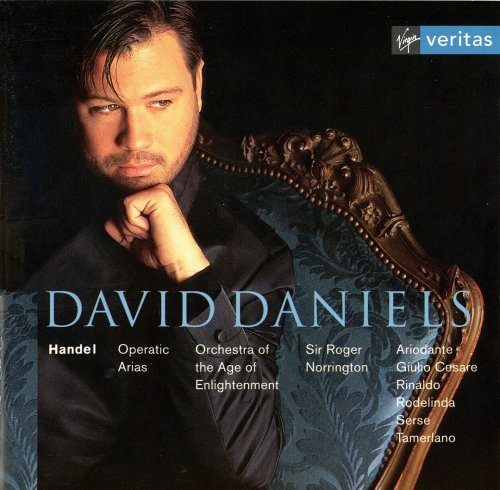
Artist: David Daniels
Title: Handel: Operatic Arias
Year Of Release: 1998
Label: Virgin Veritas
Genre: Classical
Quality: FLAC (image + .cue, log, scans)
Total Time: 1:09:24
Total Size: 325 MB
WebSite: Album Preview
Tracklist:Title: Handel: Operatic Arias
Year Of Release: 1998
Label: Virgin Veritas
Genre: Classical
Quality: FLAC (image + .cue, log, scans)
Total Time: 1:09:24
Total Size: 325 MB
WebSite: Album Preview
1.Serse - Frondi tenere...
2.Serse - Ombra mai fu (3:50)
3.Giulio Cesare in Egitto - Va tacito e nascosto (6:06)
4.Giulio Cesare in Egitto - Al lampo dell' armi (3:09)
5.Giulio Cesare in Egitto - Dall' ondoso periglio...
6.Giulio Cesare in Egitto - Aure, deh, per pieta (7:30)
7.Tamerlano - A dispetto (4;38)
8.Ariodante - E vivo ancora...
9.Ariodante - Scherza infida (9:02)
10.Giulio Cesare in Egitto - Cara speme (4:51)
11.Giulio Cesare in Egitto - L'angue offeso (5:04)
12.Rodelinda - Pompe vane di morte...
13.Rodelinda - Dove sei?(6:15)
14.Rodelinda - Vivi tiranno (5:23)
15.Rinaldo - Cara sposa, amante cara (9:52)
16.Rinaldo - Venti, Turbini (3:42)
The ever-increasing popularity of Handel and his contemporaries, and their employment of alto castratos, has encouraged the development of countertenors capable of similar vocal feats to the original interpreters of the heroic roles in these works. Among these the distinguished American, David Daniels, who burst on to the scene here a couple of years ago at Glyndebourne in Theodora, is a leading contender. If I would place Scholl in the category of Deller and Esswood, with their luminous, soft-grained tone, Daniels is closer to the more earthy sound of Bowman, his voice — like Bowman's — astonishingly large in volume.
Daniels displays and deploys his talent here in a wide range of arias reflective and dramatic. His amazing technique runs through Tamerlano's virtuoso "A dispetto" and Bertarido's "Vivi tiranno!" (where you can directly compare him with Scholl on the recent NVC Glyndebourne video of Rodelincla) without a blemish in the sound and with every division in its place yet part of a confidently delivered whole: by and large Daniels's runs and embellishments are more smoothly accomplished than Scholl's. In more reflective pieces such as Giulio Cesare's "Aure, deh, per pieta" (he also tackles Sesto's "Cara speme" from Giulio Cesare, a particularly liquid, subtle piece of singing), Bertarido's "Dove sei?" and Ariodante's sad lament, "Scherza bifida", written for the great Senesino, he uses his impeccable Italian to express wide-ranging emotions. Some may still prefer Baker's even rounder, nobler sound as Ariodante (Philips, 12/94) and Giulio Cesare (EMI, 5/89), or indeed von Otter's in her recent recording of Ariodante (Archiv, 2/98). There's room for both approaches.
In all the pieces Norrington and the OAE give excellent support, but you may find Christie's direction of the Rodelinda pieces with the same orchestra at Glyndebourne that much more positive in accentuation: by the way, he and Daniels take the accompanied recitative, "Pompe vane di morte!" about twice as fast as Christie! The recording is blameless so there's every reason to try this fine exposition of the countertenor's art. -- Gramophone [11/1998]
Daniels displays and deploys his talent here in a wide range of arias reflective and dramatic. His amazing technique runs through Tamerlano's virtuoso "A dispetto" and Bertarido's "Vivi tiranno!" (where you can directly compare him with Scholl on the recent NVC Glyndebourne video of Rodelincla) without a blemish in the sound and with every division in its place yet part of a confidently delivered whole: by and large Daniels's runs and embellishments are more smoothly accomplished than Scholl's. In more reflective pieces such as Giulio Cesare's "Aure, deh, per pieta" (he also tackles Sesto's "Cara speme" from Giulio Cesare, a particularly liquid, subtle piece of singing), Bertarido's "Dove sei?" and Ariodante's sad lament, "Scherza bifida", written for the great Senesino, he uses his impeccable Italian to express wide-ranging emotions. Some may still prefer Baker's even rounder, nobler sound as Ariodante (Philips, 12/94) and Giulio Cesare (EMI, 5/89), or indeed von Otter's in her recent recording of Ariodante (Archiv, 2/98). There's room for both approaches.
In all the pieces Norrington and the OAE give excellent support, but you may find Christie's direction of the Rodelinda pieces with the same orchestra at Glyndebourne that much more positive in accentuation: by the way, he and Daniels take the accompanied recitative, "Pompe vane di morte!" about twice as fast as Christie! The recording is blameless so there's every reason to try this fine exposition of the countertenor's art. -- Gramophone [11/1998]
![Susi Evans - Klezmer Playbook 2 Bonus Album (2025) [Hi-Res] Susi Evans - Klezmer Playbook 2 Bonus Album (2025) [Hi-Res]](https://img.israbox.com/img/2026-02/16/xforkxm1atgcv3mt6zn6i274q.jpg)
![Nicole McCabe - Color Theory (2026) [Hi-Res] Nicole McCabe - Color Theory (2026) [Hi-Res]](https://www.dibpic.com/uploads/posts/2026-02/1771327761_folder.jpg)
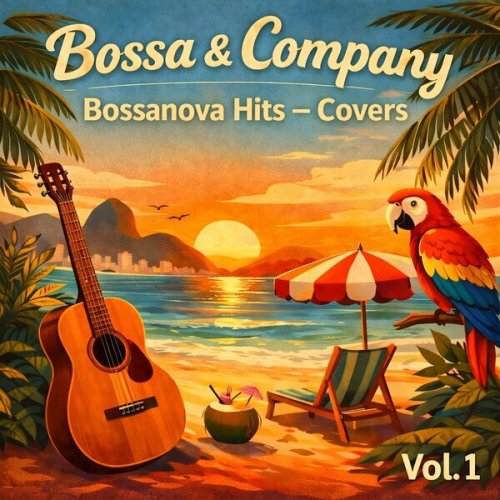
![Martin Fabricius Trio - Under the Same Sky (2018) [Hi-Res] Martin Fabricius Trio - Under the Same Sky (2018) [Hi-Res]](https://www.dibpic.com/uploads/posts/2026-02/1771153226_cover.jpg)
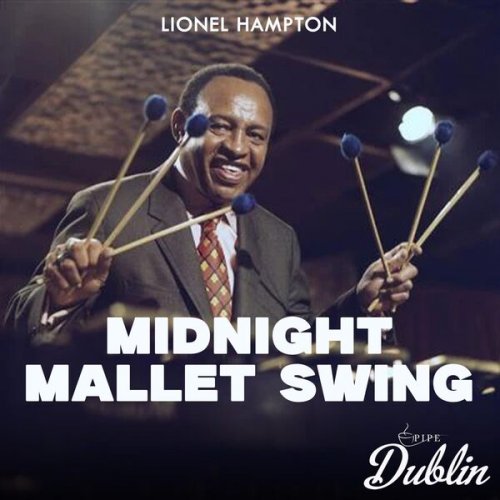
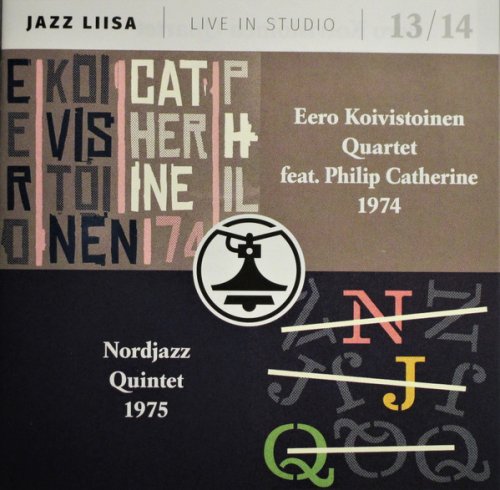
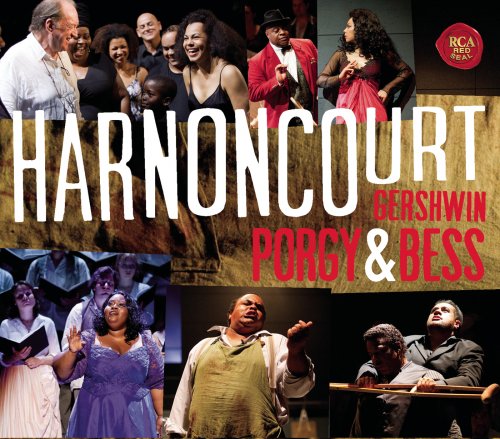
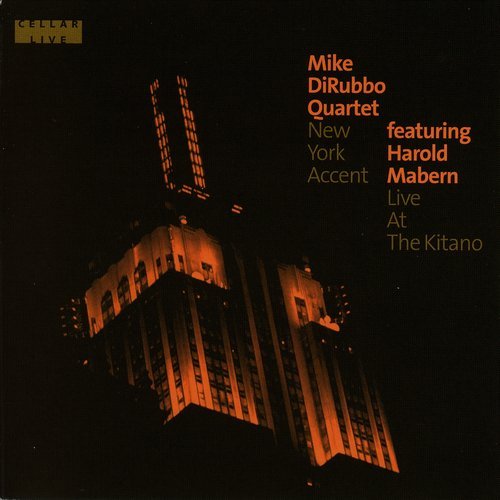
![William Warfield, Leontyne Price, Cab Calloway, RIAS-Unterhaltungsorchester, Alexander Smallens - Gershwin: Porgy and Bess (Live) (2008) [Hi-Res] William Warfield, Leontyne Price, Cab Calloway, RIAS-Unterhaltungsorchester, Alexander Smallens - Gershwin: Porgy and Bess (Live) (2008) [Hi-Res]](https://www.dibpic.com/uploads/posts/2026-02/1771309017_cd-cover-01.jpg)